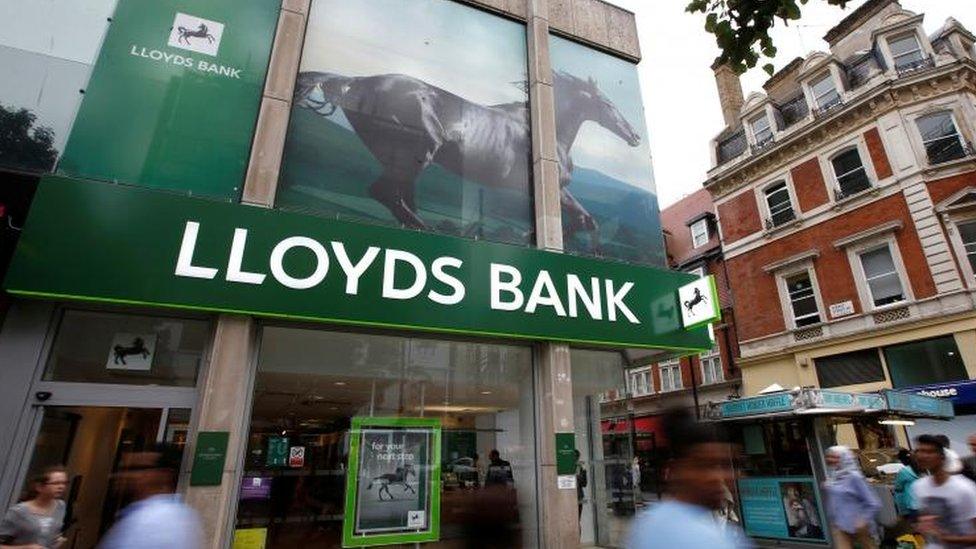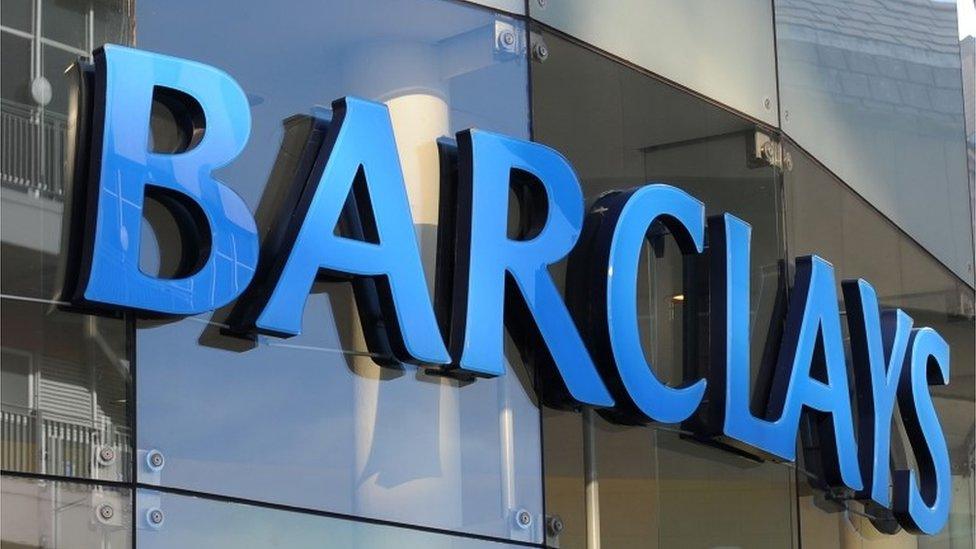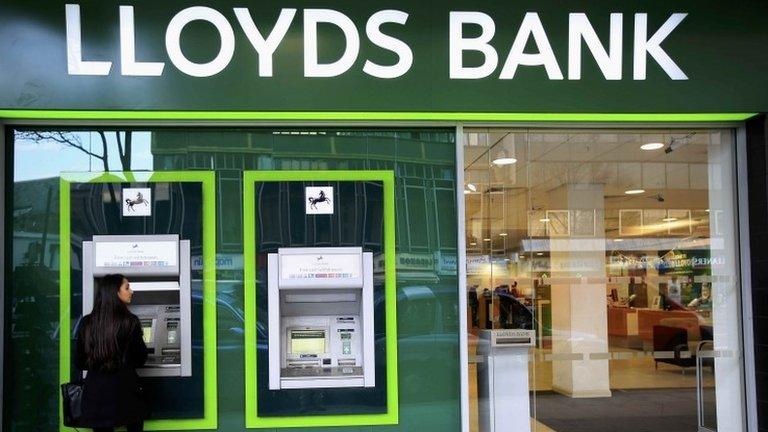PPI complaints continue to flood in at Ombudsman
- Published

Lloyds Banking Group has set aside the most money for PPI compensation at £17.1bn
Fresh complaints about the mis-selling of payment protection insurance (PPI) continue to dominate the workload of the Financial Ombudsman Service.
The ombudsman received an extra 43,000 PPI complaints between July and September after banks rejected their customers' claims for compensation.
More than half of the PPI complaints during the quarter - 57% - continued to be upheld in favour of the customers.
Packaged bank accounts were the second most complained-about financial policy.
However the number of those, at just 5,317 during the quarter, trailed far behind PPI, which still accounts for more than half the problems with which the ombudsman has to deal.
Costly scandal
The figures highlight yet again what a huge problem PPI compensation has become for the UK's banks, as the complaints continue to flood in.
It has been calculated by the think tank New City Agenda, external that just over £40bn has now been set aside by banks to pay compensation to customers who were mis-sold the insurance polices in the first place, and to employ thousands of extra staff to process the subsequent complaints.

Of that, about £25bn has actually been paid out, denting the cash resources of the banks and giving a significant fillip to consumer spending.
The main City regulator, the Financial Conduct Authority (FCA), has proposed June 2019 as a cut-off point for any new complaints to be lodged with banks, but the claims continue to pour in, both from individuals and claims management companies.
Recently Barclays set aside an extra £600m for compensation costs and Lloyds Banking Group put aside a whopping £1bn extra.
The league table is dominated by the UK's big High Street banks, which mis-sold the insurance polices for the best part of two decades.
Lloyds has now set aside more than any other bank, at £17.1bn, followed by Barclays at £8.5bn, RBS at £4.7bn and HSBC at £2.9bn.
Since the start of 2003 the Ombudsman has received 1,445,000 complaints about PPI mis-selling.
But the floodgates opened in 2011 when the British Bankers' Association (BBA) lost a High Court challenge to a decision of the former City regulator, the Financial Services Authority.
The FSA ruled that banks should look again at complaints which they had turned down.
Mis-selling to millions
PPI policies were supposed to provide cover if someone could not repay their loans or credit card bills, because of illness, accidents or unemployment.
But a series of inquiries by consumer groups and the UK financial authorities, stretching back more than a decade, concluded - in the teeth of opposition from the banking industry - that tens of millions of the polices had been mis-sold to people who did not want or need them.
Some people had been forced to buy the insurance under duress from bank staff who claimed, improperly, that buying a policy was compulsory for customers taking loans.
Other customers were sold policies on which they could never make a legitimate claim, for instance because they were self-employed.
The sale of PPI has now largely been banned.
- Published27 October 2016

- Published26 October 2016

- Published2 August 2016
